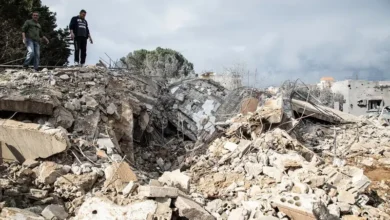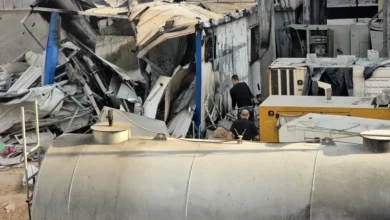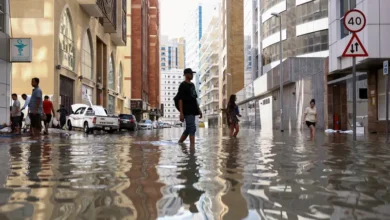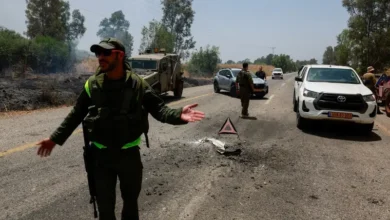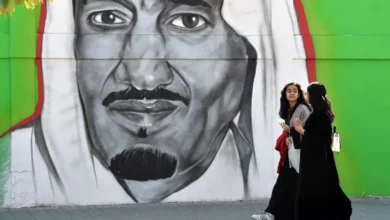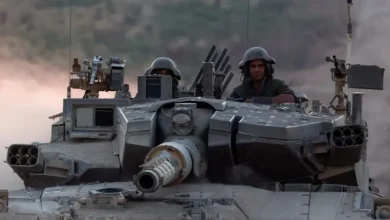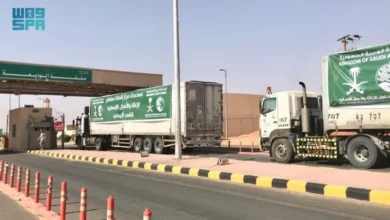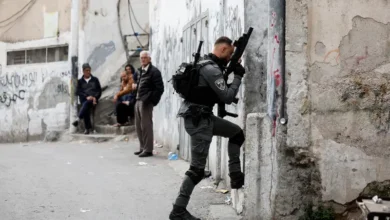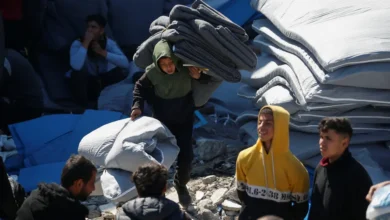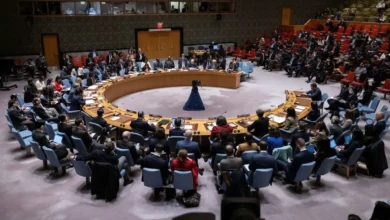Over 1,300 killed as Israel imposes total siege on Gaza after Hamas attack
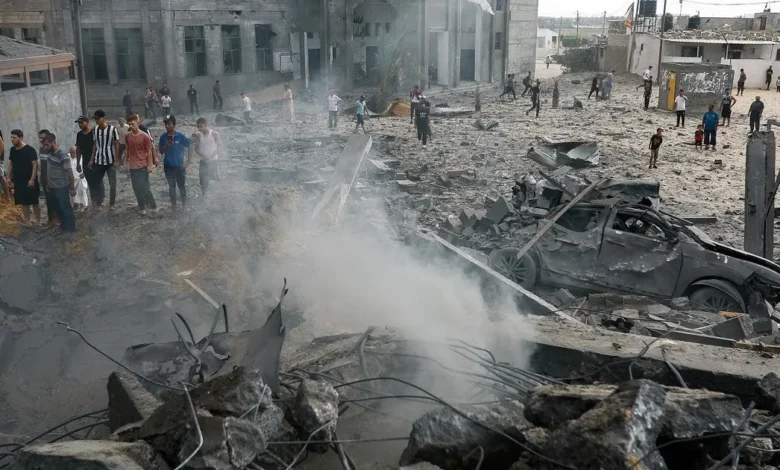
The Israeli military said it had called up an unprecedented 300,000 reservists and was imposing a total blockade of the Gaza Strip, in a sign it may be planning a ground assault in response to the devastating weekend attack by Hamas gunmen.
After hours of intense bombardment by Israeli jets, Hamas, which controls Gaza, said it would execute an Israeli captive if civilian houses were bombed.
Inside Israel, Palestinian fighters were still holed up in several locations, two days after they killed hundreds of Israelis and seized dozens of hostages in a raid that shattered Israel’s reputation of invincibility.
Israeli TV channels said the death toll from the Hamas attack had climbed to 900.
Hamas spokesman Abu Ubaida said the group had been acting in accordance with Islam by keeping the Israeli captives safe.
But in return for every Israeli bombing of a civilian house without warning, it will begin executing an Israeli civilian captive and broadcast it, he said.
In Gaza, Israel pressed on with its most intensive retaliatory strikes ever, which have killed more than 500 people since Saturday. Defense Minister Yoav Gallant announced a tightened blockade, which would prevent even food and fuel from reaching the strip, home to 2.3 million people.
As night fell, the Israeli air strikes became more aggressive and witnesses said several Hamas security headquarters and ministries were hit. The strikes also destroyed some roads and houses.
Israel also bombed the headquarters of the private Palestinian Telecommunication Co., which could impact land phone, internet and mobile phone services.
As it rained, explosions and lightning lit the skies as thunder mixed with the sound of the bombings.
In a further signal of Israel’s rapid shift to a war footing, a cabinet member from Prime Minister Benjamin Netanyahu’s Likud Party said it could set up a national unity government joined by opposition leaders within hours.
Netanyahu told mayors of southern towns hit by Saturday’s surprise assault that Israel’s response would “change the Middle East.”
At the Jabalia refugee camp in northern Gaza, men clambered on a pancaked building to pull an infant’s tiny body from the rubble, carrying it down through the crowd below amid still-smoldering remains of bombed buildings.
That air strike killed and wounded dozens, according to the territory’s health ministry.
UN Secretary-General Antonio Guterres said some 137,000 people were taking shelter with UNRWA, the UN agency that provides essential services to Palestinians.
Fighting spread
The prospect that fighting could spread to other areas has alarmed the region. Israeli troops “killed a number of armed suspects that infiltrated into Israeli territory from Lebanese territory,” the military said, adding helicopters “are currently striking in the area.”
An official with Hezbollah denied that the group had mounted any operation into Israel. Hezbollah, a Shia militant group powerful in southern Lebanon, is, like Hamas, backed by Iran.
Artillery shelling and gunfire were heard at Lebanon’s southern border with Israel, a correspondent for Hezbollah’s Al-Manar TV said in a post on social media. Israel’s Army Radio gave the location as being near Adamit, across from the Lebanese border towns of Aalma El Chaeb and Zahajra.
The Al Quds Brigades, the armed wing of the Palestinian Islamic Jihad movement, claimed responsibility for an attack at the Lebanon-Israel border.
In Israel’s south, scene of the deadly Hamas attack, Israel’s chief military spokesman said troops had re-established control of communities inside Israel that had been overrun, but that isolated clashes continued as some gunmen remained active.
The shocking images of the bodies of hundreds of Israeli civilians sprawled across the streets of towns, gunned down at an outdoor dance party and abducted from their homes were like nothing seen before in the decades-old Israeli-Palestinian conflict.
The announcement that 300,000 reservists had been activated in just two days added to speculation that Israel could be contemplating a ground assault of Gaza, a territory it abandoned nearly two decades ago.
“We have never drafted so many reservists on such a scale,” chief military spokesperson Rear-Admiral Daniel Hagari said. “We are going on the offensive.”
Palestinians reported receiving calls and mobile phone audio messages from Israeli security officers telling them to leave areas mainly in the northern and eastern territories of Gaza, and warning that the army would operate there.
Hamas, which calls for Israel’s destruction, says its attack was justified by the plight of Gaza under a 16-year blockade and the deadliest Israeli crackdown for years in the occupied West Bank.
‘A total massacre’
Mainstream Palestinian groups who deplored the attacks said the violence was nonetheless predictable, with a peace process frozen for nearly a decade and far-right Israeli leaders talking of annexing Palestinian land once and for all.
Israel and Western countries said nothing justified the intentional mass killing of civilians.
The attackers gunned down scores of young Israelis at the desert dance party – media reported 260 killed there. A day later dozens of survivors were still emerging from hiding. The site was littered with wrecked and abandoned cars.
“It was just a massacre, a total massacre,” said Arik Nani, who had been celebrating his 26th birthday and escaped by hiding for hours in a field.
In Gaza, footage obtained by Reuters showed dozens of people climbing over collapsed buildings in search of survivors, the air still dusty from impact. Sirens rang out as emergency teams put out cars that had caught fire.
At least 560 Palestinians have been killed and 2,900 wounded in Israeli air strikes on the blockaded enclave since Saturday, said Gaza’s Health Ministry.
“The Zionist enemy’s military targeting and bombing of homes inhabited by women and children, mosques and schools in Gaza amount to war crimes and terrorism,” Hamas official Izzat Reshiq said in a statement.
Egypt, which has mediated between Israel and Hamas at times of conflict in the past, was in close contact with the two sides, according to Egyptian security sources.
Qatari mediators have held urgent calls with Hamas officials to try to negotiate freedom for Israeli women and children seized by the militant group and held in Gaza, in exchange for the release of 36 Palestinian women and children from Israel’s prisons, a source told Reuters.
An Israeli official said no negotiations were under way.
“The price the Gaza Strip will pay will be a very heavy one that will change reality for generations,” Defense Minister Gallant said in Ofakim, one of the towns that had been attacked.
Israel’s military faces harsh questions for the country’s worst intelligence failure in 50 years. Netanyahu’s options may also be curtailed by concern over the fate of Israeli hostages.
